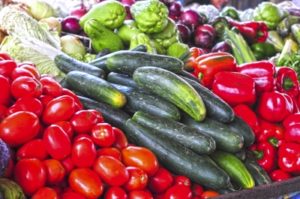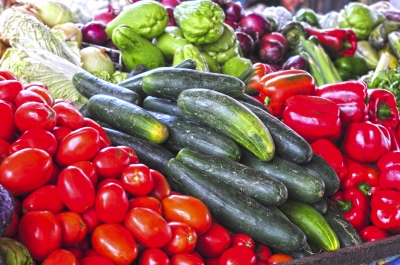 Philippine food imports must first be inspected and cleared by health and agriculture officials before undergoing assessment by customs personnel. This system ensures food safety, preventing the entry of diseases and forestalls technical smuggling, according to the Department of Agriculture (DA).
Philippine food imports must first be inspected and cleared by health and agriculture officials before undergoing assessment by customs personnel. This system ensures food safety, preventing the entry of diseases and forestalls technical smuggling, according to the Department of Agriculture (DA).
In a letter to Customs Commissioner Alberto Lina dated March 30, Agriculture Secretary Proceso Alcala requested the Bureau of Customs (BOC), to implement Article IV Section 12 (b) of the Food Safety Act of 2013 ordering all food imports to be inspected and cleared for release at the first ports of entry by DA and Department of Health (DOH) officials prior to customs assessment.
Alcala also endorsed Resolution No. 1 series of 2016 (Resolution 01-2016) passed by the Philippine Council for Agriculture and Fisheries-Committee on Poultry, Livestock and Feed Crops (PCAF-CPLFC) on March 16, 2016 requesting the DOF and BOC “to strictly implement the provision of the Food Safety Act 2013, Section 12 (b).”
PCAF, formerly the National Agricultural and Fishery Council, is an attached agency of the DA that acts as a consultative body and serves as a forum for discussions between the government and the private sector on agriculture and fisheries issues.
Resolution 01-2016 decreed that Section 12 Rule 12 b.1 of the Food Safety Act of 2013, and its implementing rules and regulations, state that the DA and DOH shall develop the regulations on cargo/shipment inspections and clearance procedures for imported products prior to assessment of the BOC for the appropriate tariffs.
It added that “the strict enforcement of this policy will help ensure the safety of these imported agricultural and food products that could bring in diseases from other countries” and “will serve as a control mechanism against possible technical smuggling of agricultural and food products.”
Lina has already acted on the request by issuing Memorandum Circular No. 55-2016; the memo attached Alcala’s letter and the PCAF-CPLFC resolution for the “information and guidance” of customs officials.
Lina previously said that as early as October 2015, BOC had issued a memorandum requiring examination of all shipments in refrigerated container vans by customs in the presence of representatives from the Samahang Industriya sa Agrikultura and Federation of Philippine Industries Inc.
As a complementary measure, BOC said it is procuring reefer facilities to facilitate inspection of refrigerated products — a mandate of the Food Security Act — in an effort to avoid unnecessary delays and expenses for both government and stakeholders.
All of these are geared at promoting transparency, the bureau noted.
Last year, Assessment and Operations Coordinating Group Deputy Commissioner Atty. Agaton Teodoro Uvero said comparisons between BOC agricultural import statistics and DA data showed discrepancies, arising mainly from the lack of a mechanism for full examination of refrigerated shipments.
“The tight and tedious processing of agricultural products (are) all part of the commitment of BOC, along with the Department of Agriculture and other government agencies, in its fight to minimize if not eradicate smuggling,” BOC said in an earlier statement.
Image courtesy of Gualberto107 at FreeDigitalPhotos.net





